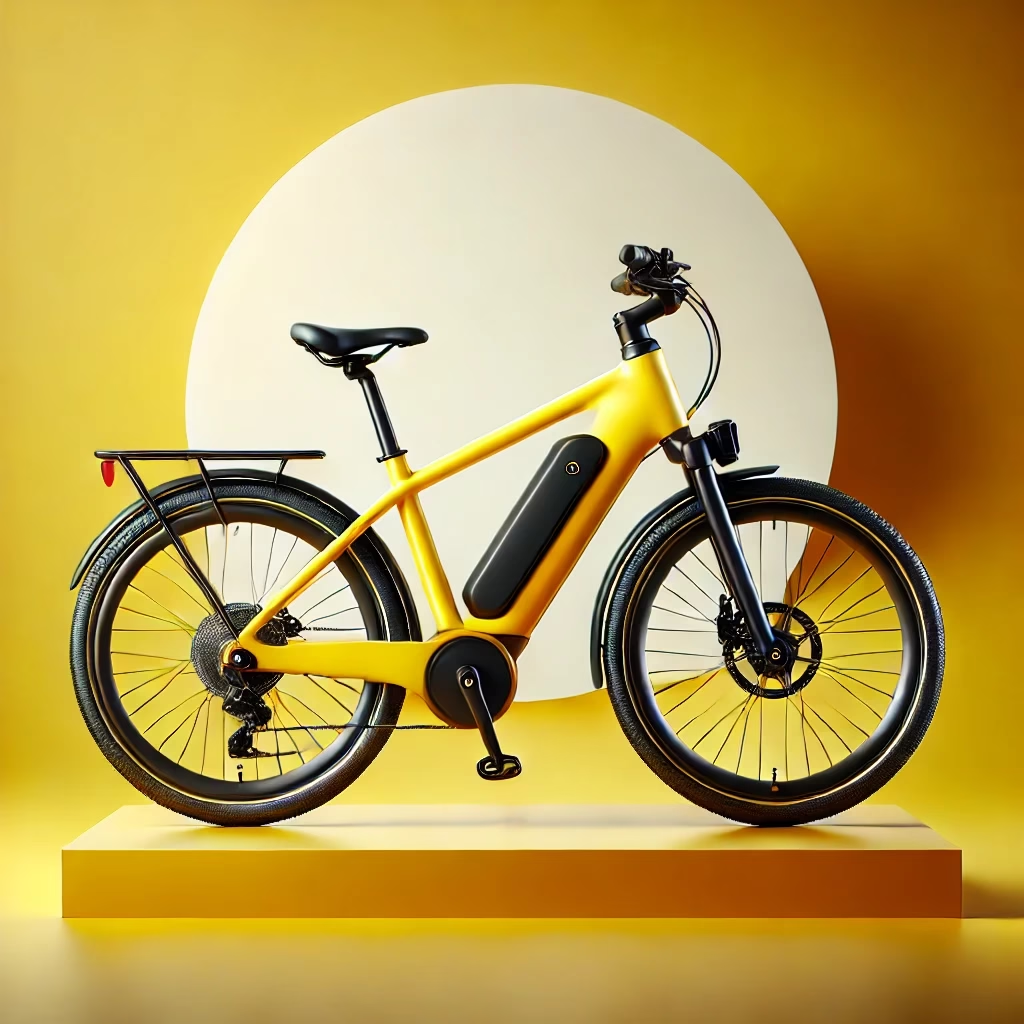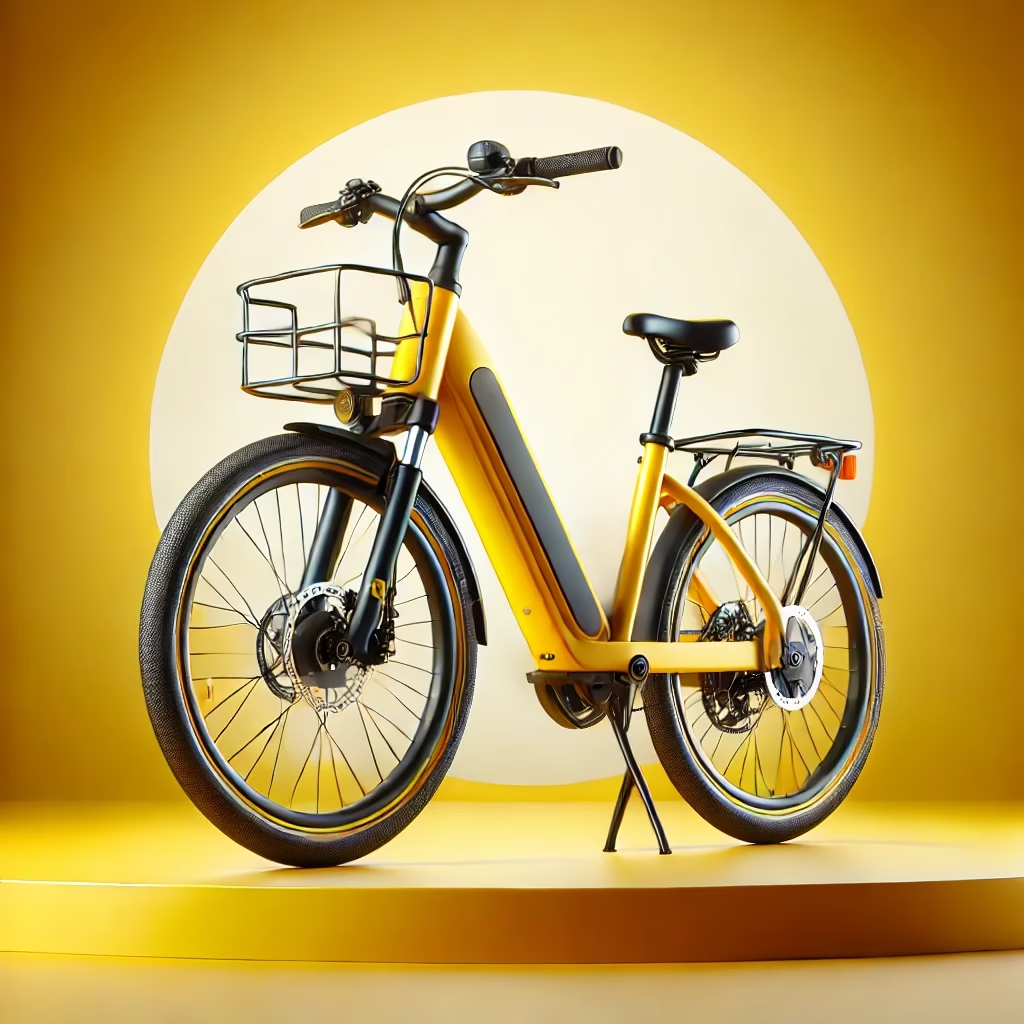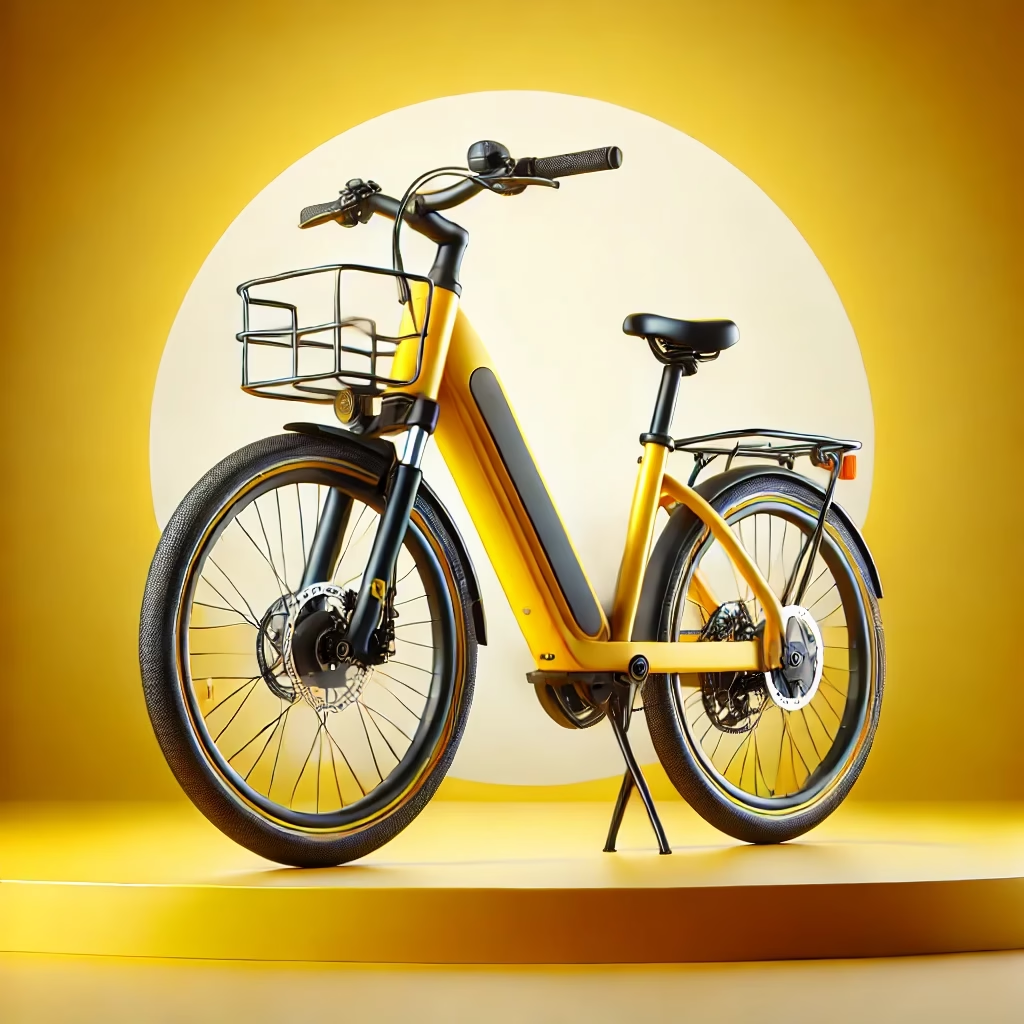Chinese bike sharing startup Ofo initially seemed to embody successful disruption in urban transportation as a cutting-edge brand. Ofo brought dockless bike-sharing to the world when its founder Dai Wei established the business in 2014 after graduating from Peking University. Ofo achieved a $2 billion market valuation when it expanded into operations spanning 20 nations plus millions of yellow bicycles served cities throughout the world. The fast-paced development of Ofo led to its sudden descent as operational issues together with financial mismanagement and stiff competition forced the company into decline. This publication undertakes an extensive examination of Ofo’s transformative path through its emergence and enlargement to its management difficulties on the way toward final collapse.
The Birth of Ofo: A Student’s Vision
Ofo started in 2014 when founder Dai Wei studied for his master’s degree at Peking University. Student problems with bicycle availability prompted Dai to start a bike-sharing initiative named Ofo which employed bicycle-like letter combinations as its basis. The original idea behind Ofo offered students bicycle rentals through a code-operated system which allowed them to finish their cycle at any desired location.
The project achieved immediate success which made Dai immediately understand its ability to move beyond university campuses. Ofo announced its official entrance into the market through its public release of the signature yellow bikes and dockless model in 2015. Ofo set its directive to fix urban transportation’s “last-mile” difficulty through inexpensive eco-friendly transportation alternatives to cars and buses.

The Rise: A Global Bike-Sharing Phenomenon
A major innovation of Ofo involved its revolutionary approach to bike-sharing through the dockless model. O fo implemented a new bike-sharing system which enabled users to drop off their bikes anywhere because it lacked fixed docking stations and enhanced accessibility. The cycling fleet came with smart lock and GPS tracking components.
Key Factors Behind Ofo’s Success
Ofo earned a major advantage when it became one of the pioneering companies to offer dockless bike-sharing services.
Customers from diverse groups could use Ofo’s bikes because of their budget-friendly prices which started at $0.15 per journey.
Ofo received substantial investment support from top corporations such as Alibaba and Didi Chuxing and DST Global which allowed the company to pursue rapid growth.
Ofo pursued rapid international expansion by launching its services in more than 20 countries that included the United States, United Kingdom, Australia and Singapore.
The bike-sharing company Ofo reached global success in 2017 when it began operating more than 10 million bikes while serving millions of customers each day. The valuation of the company reached more than $2 billion making it the flagship example of technology progress in China.
The Challenges: Cracks in the Foundation
Quick growth could not save Ofo when the company encountered substantial difficulties that resulted in its demise. Ofo encountered various obstacles which researchers organized into essential focus points.
- Financial Mismanagement
Ofo accelerated its growth spree through expensive strategies that would eventually destroy it. Ofo used billions of dollars to produce bicycles and expand into different markets but remained unable to create enough revenue to offset its financial costs. The low prices Ofo offered attracted customers yet proved unsustainable as a long-term business strategy. High maintenance expenses including vandalism incidents together with theft and normal wear occurred because of the company’s operations. - Intense Competition
Ofo’s market success created an explosive bike-sharing trend throughout China that attracted numerous competing businesses into the market. The main competitor to Mobike was its orange bicycle service which duplicated Ofo’s capabilities. The price warfare triggered by competition resulted in deteriorating Ofo’s profits even more. User acquisition by the companies demanded heavy use of subsidies which instigated competitive price lowering. - Regulatory Issues
When bike-sharing grew popular multiple cities developed new rules to solve the disorder created by the bicycle fleets. The regulatory actions and market restrictions implemented in several locations against Ofo made its business operations and plans much harder to execute.
The Fall: From Unicorn to Bankruptcy
The year 2018 signaled the start of total financial collapse for Ofo. The business lacked sufficient funds because its investors rejected additional capital investments. Ofo redirected its business model by leaving international markets and firing staff to survive. Ofo users in China formed queues outside company offices due to their demands for refunding deposit money.
Ofo declared bankruptcy in China during December 2018 while its explosive growth came to an end. The failed company created behind it numerous unpaid debts while also leaving large numbers of abandoned bicycles and dissatisfied customers. Before its demise Ofo maintained 200 million registered users but by the time bankruptcy hit it became an example of unfettered ambition accompanied by inadequate leadership.
The Aftermath: Lessons Learned
Ofo’s rise and fall offer valuable lessons for startups, investors, and policymakers:
The rapid growth achieved by Ofo was impressive yet unsustainable because it destroyed the company’s financial stability. The ability of startups to maintain profits at pace with their expansion activities guarantees sustainable long-term survival.
Intense competition between Ofo and Mobike as well as other rivals caused the company to exhaust its resources until it was compelled to start a price competition war. Startups need to establish their own unique identity since price reduction wars can prove fatal to their operations.
The innovative dockless concept of Ofo required extensive operational management which posed significant difficulties to the company. A startup should put resources into logistics management together with maintenance solutions and user support to deliver a smooth experience for customers.

Ofo faced regulatory challenges because their success required teams to spend time cooperating with policymakers so they could manage local laws accordingly.
Leadership together with governance failed to establish strategic direction due to a lack of experienced leaders at Ofo. Startups need to establish powerful management groups and operational systems which help them handle emerging issues competently.
Ofo’s Legacy: A Mixed Impact
The innovative changes in urban mobility that Ofo introduced will remain its enduring achievement even though the company failed. Through its dockless bike-sharing system Ofo instigated numerous imitations that enabled urban communities all around the world to use this innovative commuting method. Yellow bike vehicles represented innovative products yet these bikes ended up being a waste problem.
Through its operations Ofo illuminated both successful and unsuccessful elements within China’s technological startup region. Quick company expansion and market downfall emerged from the sharp funding competition and elevated risk-taking nature which define this industry.
Conclusion
Ofo’s story demonstrates how ambition combined with innovation and excessive confidence brought rise and eventual downfall to the company. The success of the company transformed urban mobility yet eventually led to its demise because of how popular it became. The iconic yellow bikes of Ofo ceased operations from city streets yet their marketplace creation remains an enduring achievement of the bike-sharing industry. The Ofo story demonstrates to startup companies and investors that market-friendly expansion and operational quality and dedicated leadership remain essential during periods of quick industry evolution.
The Founders of Ofo: Dai Wei and the Journey of Building a Bike-Sharing Empire
Founder Dai Wei established O fo as the pioneering bike-sharing startup because he embodied vision and determination throughout its creation process. Through his youthful ambition Dai Wei took an ordinary university idea to become a worldwide revolution of urban transportation. The company started with difficulties as it experienced busy expansion and tough marketplace battles which ultimately led to its sudden collapse. This blog examines Dai Wei’s life path as he constructed Ofo and acquired important knowledge from his experiences.
Early Life and Inspiration: The Making of an Entrepreneur
In 1991 Dai Wei emerged in the world as the first child of his parents in Anhui Province located in China. Since his early childhood he showed enthusiasm for technological progress along with innovative ideas. At Peking University he became an information management student before completing his undergraduate degree at this top Chinese academic institution. During his college years at Peking University Dai Wei started developing his entrepreneurial talent.
Dai Wei used to cycle throughout his time as a university student. He documented that numerous students faced bicycle scarcity problems inside the campus which caused performance breakdowns among students. The notion of bike sharing popped into his mind after he observed the need for easy affordable bicycle transmission. He established O fo during his time as a master’s student in 2014.
The Birth of O fo: From Campus Project to Global Startup
Dai Wei started his business with a straightforward yet original idea. Dai Wei introduced the bike-sharing service O fo at Peking University using the unique naming scheme in lower case which forms an outline of a bicycle. The project enabled students to obtain bicycles by code then they could lock them anywhere on campus after their journey. Multiple thousands of students joined the new concept soon after its launch.
Emboldened by the grand success of the campus platform, Dai Wei took O fo offcampus. In 2015, O fo became a commercial bike-sharing company and publicly launched its yellow bikes and dockless platform. It aimed at the “last-mile” issue of urban mobility, at an affordable price, making it a convenient and environmentally friendly means for urbanites to contrast cars and buses.
The Early Days: Breakthroughs and Challenges
Building up O fo was not an easy job. Dai Wei and his team faced a string of problems like cash shortages, transportation issues, and a lack of interest from potential investors. Nevertheless, Dai Wei developed a vision that pushed him beyond the setbacks.
A major milestone was in 2016 when ofo took in its first major funding round of $15 million from investors like Matrix Partners China and Gao Rong Capital. With this round of funding, Ofo expanded beyond Beijing into other Chinese cities. The dockless model and low price went viral, attracting millions.
Fast Expansion and International Growth
Come 2017, the company officially became the largest bike-sharing firm in China, with billions of dollars poured in from top investors like Alibaba, Didi Chuxing, and DST Global. Within a few short years, O fo yellow bicycles became permanent fixtures in large cities in China, while millions of white-collar workers used them as their primary means of travel to and from work. Not content with being a local brand in China, Dai Wei harbored a different vision for O fo as some sort of world brand to redefine urban mobility in cities around the globe. It expanded extremely quickly into more than 20 countries worldwide, including the U.S., U.K., Australia, and Singapore.
The Challenges: Cracks in the Foundation
Nevertheless, notwithstanding its rapid expansion, Ofo could not be free of challenges, and some forces pushed it towards unveiling. The challenges fall into a few key areas.
- Financial Mismanagement
Ofos aggressive expansion went hand in hand with huge costs. O fo had spent billions of dollars building bikes and entering new markets with little success in revenue generation to cover their operations. An attractive proposition for users in the short term became unsustainable in the long term with Ofo’s comparatively low pricing. Coupled with this, O fo was beset by extremely high maintenance costs due to vandalism, theft, and a decent bit of wear and tear. - Very Intense Competition
O fo’s success led to a bike-sharing boom in China, with hundreds of competitors flooding in. Mobike was perhaps the most commendable rival, sharing a similar model but with orange bikes. The competition gave rise to cutthroat market prices, making it all that harder to make a profit. The companies have been using massive subsidies to lure users into their fold, which is akin to a race to the bottom. - Operational Challenges
While the dockless model of O fo is something new, it posed a lot of operational challenges. Often the bikes are parked in locations that are either inconvenient or illegal, attracting complaints from city authorities and residents alike. Besides, managing such a vast fleet of bicycles has become an operation in itself for the company, with many bikes ending up broken, stolen, or abandoned. - Regulatory Issues
Bike-sharing grew very popular in cities the world over; thus, many governments imposed regulations on dockless bikes in order to ameliorate the conditions in cities. There were several markets in which O fo faced fines, bans, and restrictions to make matters much worse than they already were. - Leadership and Governance Issues
Dai Wei’s inexperience in managing a big business became a great liability as the company expanded. The leadership pool has reputedly struggled with the very chaotic order in which management intervenes into the company’s strategy shifts and geographical directions. Besides, having relied on venture capital funding, Ofo felt the pressure to grow rather than satisfy profitability.
After O fo declared bankruptcy in December 2018, its meteoric rise finally ceased: neglected debts, abandoned bicycles, and disheartened users were its legacies. At its height, O fo boasted more than 200 million registered users, being a lesson in unchecked ambition and incompetent management by the time its bankruptcy was announced.
Dai Wei’s Legacy: Learning to Pick Old Lessons
In spite of Ofo being unable to make it, his journey has served to create lessons that every entrepreneur and innovator has stuck in their hearts:
Vision and Determination: Dai Wei has proven the power of vision and determination since he has done the hard work by realizing the need for a problem and tapping it as an opportunity.
Need for Sustainable Growth: Rapid expansion attracted much applause for O fo; however, sustainability was heavily compromised. Startups are to understand that growth, with profitability, is the key to successful long-term establishment.
Adaptability and Resilience: The course of Dai Wei highlights the adaptability and resilience needed in facing challenges. Though O fo has finally failed, its contribution to urban mobility is undeniable.
The Role of Leadership: Dai Wei’s inexperience in leading a large-scale company reiterates the need for strong leadership and governance in scaling a startup.

Conclusion
Dai Wei’s journey with Ofo is a classic tale of ambition, invention, and hubris. It revolutionized urban mobility, outputting into its own success, it just was brought right down by its paroxysm of ambition. While its yellow bicycles no longer roam the streets, Ofo’s legacy absolutely lives on in the bike-sharing industry it did so much to establish. For any and all other entrepreneurs and innovators, Dai Wei cautioned us that growth without powerful and persistent operational excellence as well as effective leadership into a decidedly volatile world is a pathway to ruin.












Your work is like a mirror, reflecting the thoughts and feelings of those who read it, yet always offering something new with each glance.